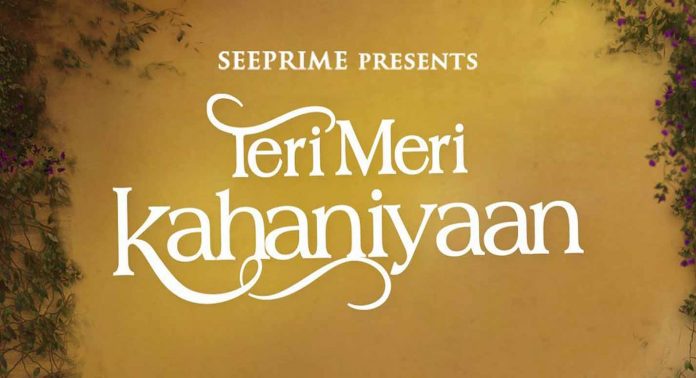The good and the bad, love and hate, pleasure and agony, success and failure, are all woven together in the fabric of our existence, as Carl Jung famously stated. Refuting one is the same as refuting the other. Contradictory elements exist in fragile equilibrium in the intricate fabric that is life. Each decision has repercussions that highlight the inherent duality of life.
There is truth behind the overused adage that “life is all about choices.” Perhaps the success of Teri Meri Kahaaniyan lies in demonstrating the apparent contradiction of those options. Despite their stylistic differences, the three stories in Pakistan’s first anthology film explore the inherent tensions that exist in everyday existence. Poet Nadeem Baig’s Ek Sau Taeeswaan examines loyalty in a world that gives you numerous opportunities to break it—in this case, 123. Nabeel Qureshi’s Jin Mahal takes a comic approach to socioeconomic strata; Marina Khan’s Pasoori envelops society’s priorities for women in a romantic romance.
All three tales include a social critique element. The characters aren’t related to each other, but they all show the same imperfect humanity. Each one features a compelling antagonist and a satisfying resolution. The movies avoid the common pitfalls of Pakistani media, such as glamorizing poverty or romanticizing adultery.
Warning: There will be spoilers ahead! The longest of the three parts, “Jin Mahal,” follows a homeless family as they seek shelter from the pandemic by hiding out at an abandoned train station. To avoid telling his blind mother the truth, Shehenshah (Mani) tells Razia Sultana (Gul-e-Rana) that he lives in a railroad district.
The kids at home are starving as Shehenshah and Mumtaz (Hira Mani) go out in search of work. They become the jins at Jin Mahal after eating paan straight from Dadi’s box and frighten the area. After that, even as spectres, they have something to look forward to and something to consume.
The film’s premiere audience loved it because it was a sincere comedy with a touch of social critique. Although Mani’s performance in a serious part is credible, it is the two kids, Hira and Gul-e-Rana, who steal the show. The art direction and cinematography are deserving of enthusiastic acclaim.
Pasoori, Khan’s directorial debut, focuses on the romance between Salman (Sheheryar Munawar) and Romaisa (Ramsha Khan), and it opens with a dance routine that Shuja Haider and Jawad Hyder choreographed.
Although its message is admirable, it falls short of the quality of the other two. The story opens with Salman, the perfect life partner in every aspect, entering the bridal suite in a burqa a few hours before the wedding. However, his presence isn’t motivated by pure affection. Rather, he has been called upon to help Romaisa with a conundrum: she has been invited to a talent competition. At the last minute, and she would like to attend on her nikkah day. Not content with the “I have ambitions too” line of thinking, she also tries the “I am a girl; that’s why I am repressed and can’t go!” line of reasoning.
Romaisa’s emotional pleadings to pursue her childhood dream of becoming a singer eventually win over Salman, who grew up in the military. While he delays, he tells her to go on with her life. Despite the plan’s failure, the marriage remains strong. Her in-laws will cheer as she performs at the Shaadi Jora. However, the creative advertising choices should have been less in-your-face, even though Munawar and Khan have great chemistry together.
All of the actors do an excellent job of fully inhabiting their roles. The awkwardness of an illicit love affair is reflected in Adnan Samad Khan’s silence. Hayat’s body language and mannerisms for the role are spot-on. Ali played a part that was most similar to his TV image, and he was fantastic in it. The short story does not suggest that unhappy marriages are a safe haven. Without being preachy, the short outshines Teri Meri Kahaaniyan due to the obvious care and maturity of its creators.
Teri Meri Kahaaniyan depicts the same universe while leaving plenty of room for imagination. The film is a huge success for Pakistani cinema, especially because it is the first of its kind. However, the transitions between the shorts could have been smoother. All the makings of a great film are present: depth, humor, romance, and introspection.
